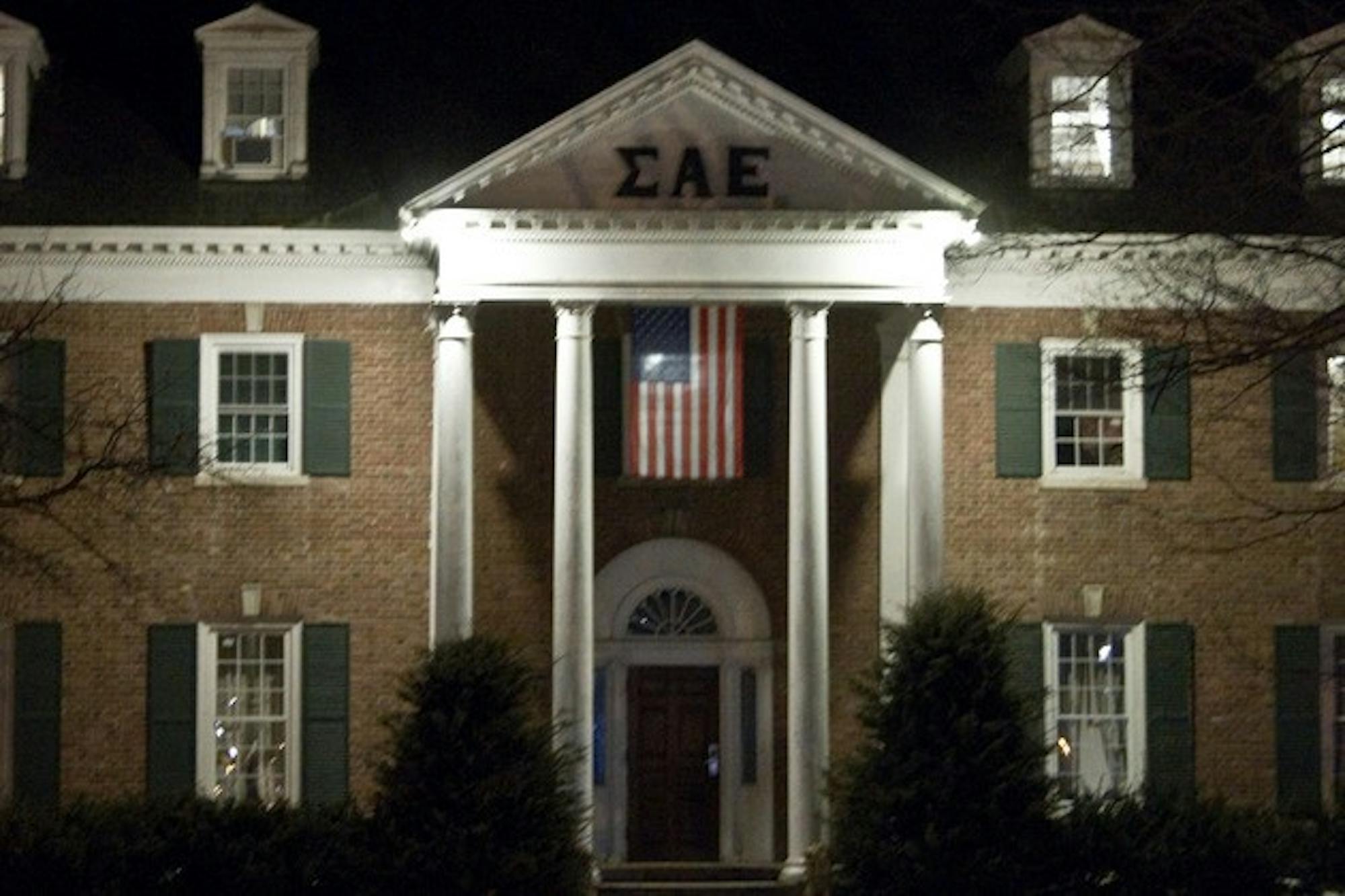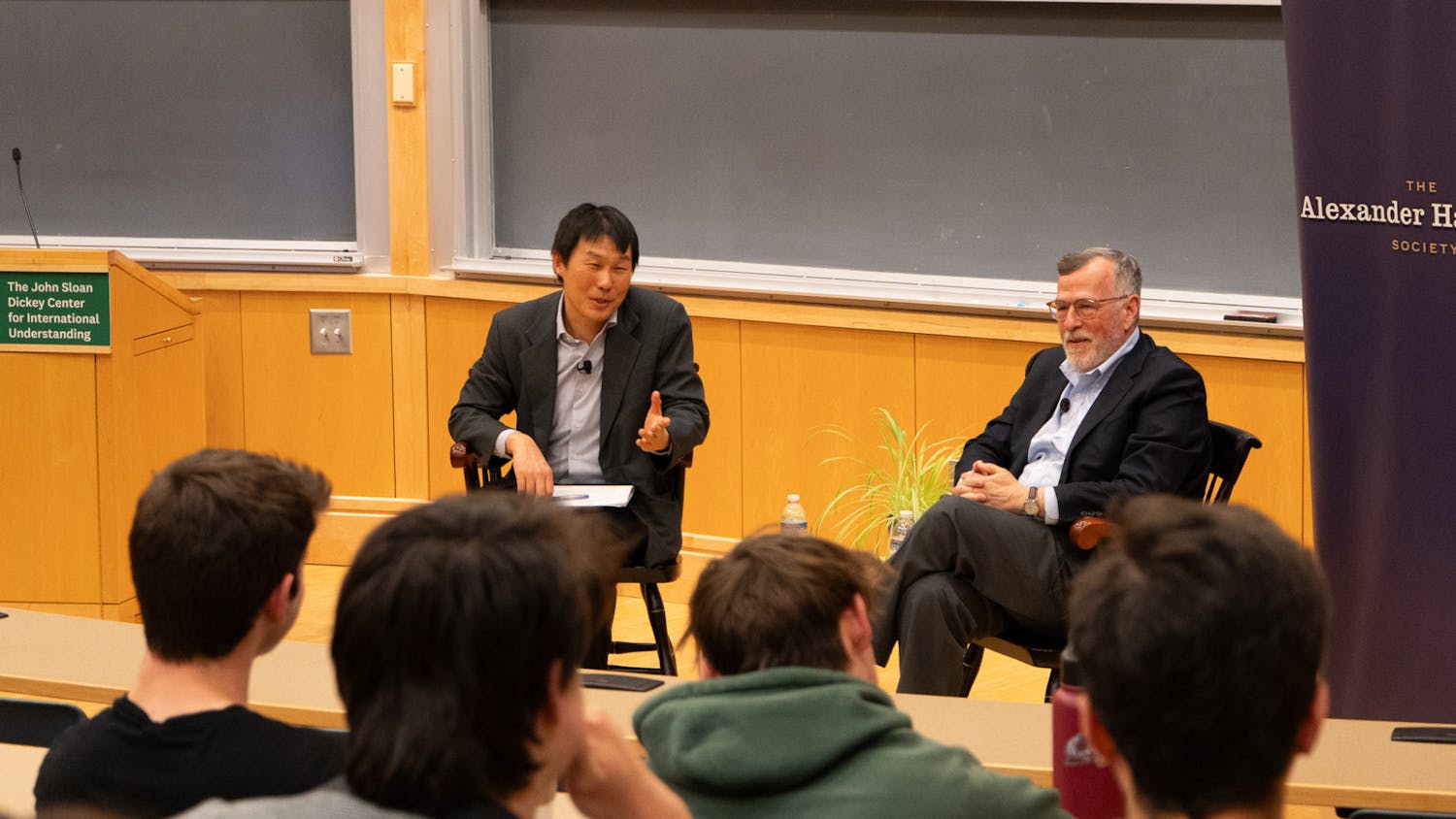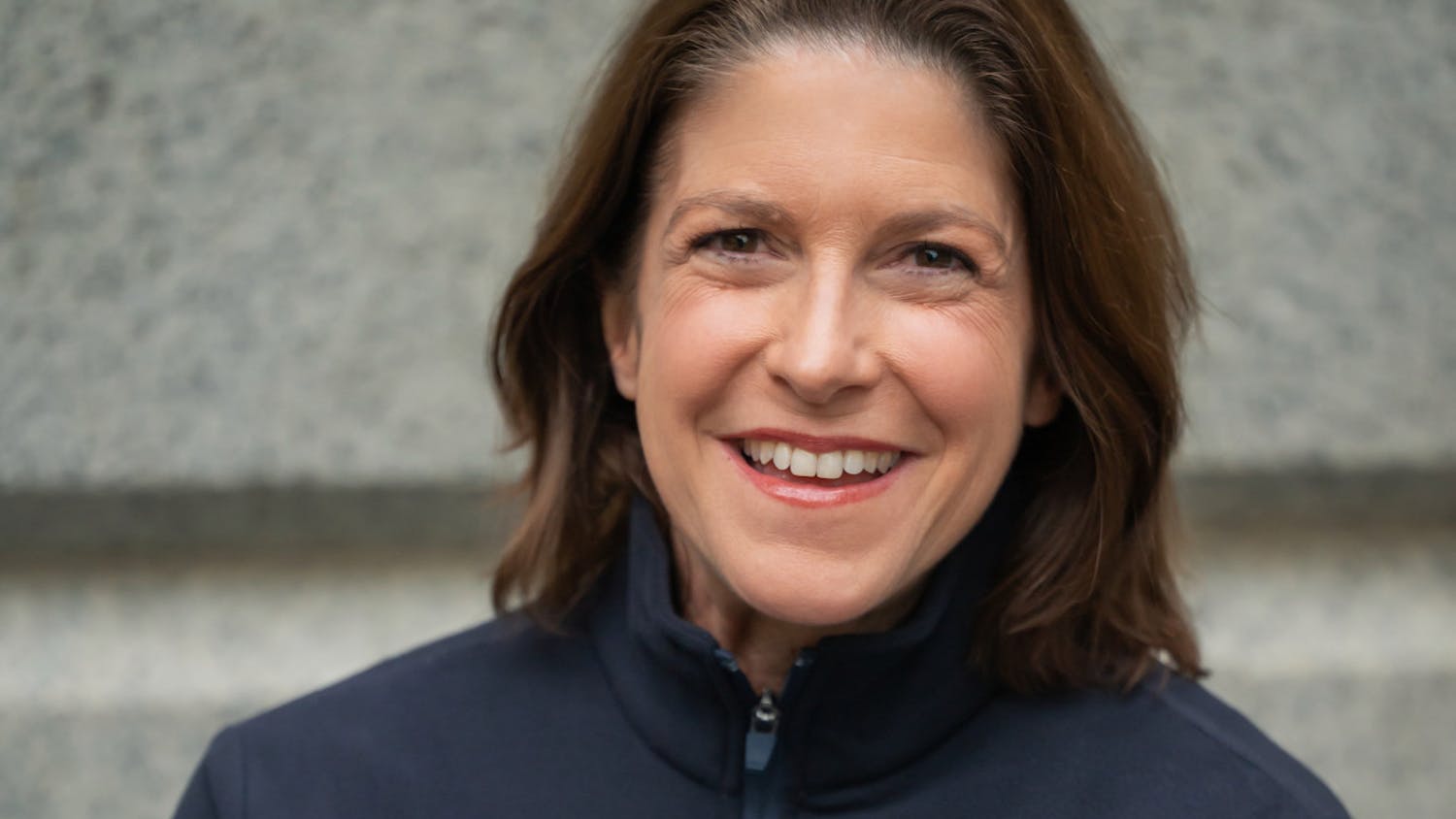Director of Media Relations Justin Anderson said he could not comment on individual judicial charges, citing College policy and federal privacy laws, but confirmed that SAE is being charged with hazing violations as an organization. The charges against the house stem from events during both 2009 and 2011 fall pledge terms, Mahoney said.
"A witness has come forward with evidence that supports the charges," Anderson said about the organizational charges.
The dates for the Committee on Standards' judicial hearings that each implicated individual faces will be finalized over spring break, Mahoney said. Mahoney said he could not comment on the details of the evidence against individual members of SAE.
A member of SAE who is being charged individually and requested anonymity due to the sensitive and personal nature of the situation said that charges against him lack plausibility because of inconsistencies in the evidence. As far as he knows, there was no preliminary investigation to establish the basic credibility of the allegations, and the process has been "rushed," he said. Safety and Security contacted him for an interview the week after he received formal notice of the charges and their possible repercussions, and the College disregarded his request that the charges be dropped, he said. The charged SAE member said he has no reason to believe that the judicial process will become more transparent or easier to navigate than it has been thus far, he said.
"I don't feel that the COS process is designed to bring out the truth," he said.
The hearing for the fraternity will be chaired by a member of the Dean of the College office.
SAE had already begun working both internally and with the College to reform its pledge process when the charges were filed, according to Mahoney. He disclosed the full extent of SAE's hazing practices and worked with Greek Letter Organizations and Societies Director Wes Schaub to change practices in violation of the College's hazing policy, he said.
"We set up an internal task force this fall to address some concerns that brothers had about our pledge term," Mahoney said. "I tried to get as many opinions as possible involved in how to change our pledge term for the better. Lohse declined to participate in this task force this fall. Michael Fancher ['13], the incoming president of SAE, has met with various administrators this winter with a goal to make fraternity pledge terms more open, transparent and safe."
Since the release of the hazing allegations earlier this term, there has been confusion about who in the administration is responsible for handling the issue that "bespeaks a failure of leadership at the highest level," Student Body President Max Yoeli '12 said.
"I think it would have been good for the student body to hear more from Dean [of the College Charlotte] Johnson and less from Justin Anderson," he said.
Hazing is a "campus scourge" that must be eliminated, Yoeli said. However, only organic, grassroots action among the student body will be effective, he said. "Sweeping" disciplinary action will only quell "introspective" conversations within Greek and other organizations about how to eradicate malicious hazing while integrating new members in healthy ways, Yoeli said.
"We need to find a way to make our interactions less aggressive and predatory and more equitable," he said.
Kevin Niparko '12 and Ellie Sandmeyer '12, the presidents of the Inter-Fraternity Council and Panhellenic Council, respectively, did not respond to requests for comment by press time. Lohse declined to comment for this article, citing an exclusive arrangement with Rolling Stone magazine.




